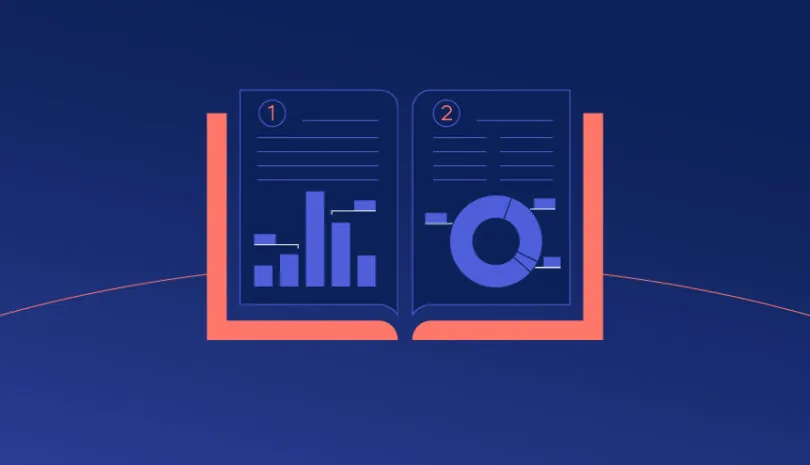A third-party vendor is a person or company that provides services for another company (or that company’s customers).
While vendors are considered “third parties,” some industries differentiate a “third-party vendor” specifically as a vendor under written contract, but not all vendors work under a contract. Third-party vendor management is the process of identifying, monitoring, and assessing how secure your third parties are so that your organization can better collaborate with suppliers and mitigate third-party risk. Proper third-party vendor management helps companies save money, increase profits, and take their products to market faster. For clarity’s sake, the term “third-party vendor” in this article refers to any individual or company that provides services to another company with or without a contract.
Third-party vendors in the digital world include cloud hosting providers, cloud-based/SaaS software solutions, business partners, suppliers, and agencies. Any person or business that accesses and processes a company’s data is also considered a third-party vendor. This can include tax professionals, accountants, consultants, and email list services, among others.
What is a Third-Party Vendor?
Goods and services obtained from third-party vendors can include, but aren’t limited to:
- Cloud web hosting services. A cloud hosting vendor might provide everything from disk space and bandwidth to encryption and high-tech security solutions.
- Cloud-based software solutions. SaaS software vendors provide access to software programs either for your business or your customers. For example, marketing automation platforms, CRMs, accounting packages, etc.
- Equipment maintenance. The company that fixes your copy machine and the team that manages your network security are third-party vendors.
- HVAC servicing. The local HVAC company that services your unit is providing third-party vendor services.
- Contractors of any kind. Any contractor, short- or long-term, is a third-party vendor.
- Call center providers. If you host your call center with another company, it is considered a third-party vendor.
- Bookkeeping/financial auditors. Any person or business hired to manage your finances, budget, or audit your finances is a third-party vendor.
- Lawyers. Sometimes it’s necessary to consult a lawyer before signing contracts or making big purchases. All legal services are considered third-party vendors.
What’s New for Third-Party Vendors and Third-Party Security in 2025?
As organizations increasingly depend on third-party vendors, managing vendor security has become more complex. Cyber threats are growing more sophisticated, regulatory requirements are tightening, and businesses must adopt advanced strategies to mitigate risks. In 2025, key trends are reshaping third-party risk management, security assessments, and compliance. Here’s what to expect:
Enhanced Third-Party Risk Management (TPRM) Strategies
With vendor ecosystems expanding, organizations are strengthening their risk management approaches. Businesses are leveraging continuous monitoring, AI-driven risk analysis, and real-time security assessments to ensure vendors meet cybersecurity and compliance standards. These proactive measures help safeguard sensitive data, reduce vulnerabilities, and maintain a resilient security posture.
Increased Dependency on Third Parties
Businesses are outsourcing more critical functions than ever, including IT services, cloud solutions, and customer support. While this provides operational efficiency, it also increases security risks, making vendor due diligence and security assessments more critical to preventing data breaches and regulatory non-compliance.
Broadening Scope of Risks
Cyber threats are evolving beyond traditional concerns like malware and phishing. Organizations must now address risks such as supply chain attacks, data sovereignty issues, and geopolitical factors that impact vendor security. The need for comprehensive risk assessments and mitigation strategies has never been greater.
Adoption of Advanced Technologies
Innovative technologies are reshaping how organizations manage third-party security. Businesses are leveraging AI, automation, and blockchain to enhance vendor assessments, detect threats faster, and reduce manual workload. These tools improve efficiency and accuracy in evaluating third-party risk.
AI and Machine Learning Integration
AI-driven security tools are revolutionizing risk assessment by analyzing vast amounts of data in real-time. These technologies can predict potential threats, detect anomalies, and automate responses, significantly improving an organization’s ability to manage vendor security proactively.
Automation of Risk Assessments
Companies are moving away from static, manual security questionnaires to dynamic, automated risk assessments. These solutions provide real-time insights into vendor security postures, reducing the time and effort needed to maintain compliance and detect vulnerabilities.
Emphasis on Operational Resilience
With the increasing number of cyberattacks and supply chain disruptions, operational resilience is now a top priority. Organizations are integrating proactive risk management strategies to ensure business continuity and reduce financial and reputational damages from third-party failures.
Supply Chain Stability
The interconnected nature of today’s supply chains means that a security breach at one vendor can have a cascading effect. Businesses are implementing stricter security protocols, requiring vendors to adhere to cybersecurity frameworks like NIST Cybersecurity Framework and ISO 27001 to prevent disruptions.
Regulatory Compliance
Global regulations like GDPR, CCPA, and NYDFS are becoming stricter, requiring companies to enforce security standards across their vendor networks. Automated compliance tracking and third-party audits are now essential to maintaining adherence and avoiding hefty penalties.
Advanced Incident Response Planning
Organizations are refining their incident response strategies to include third-party vendors in security drills and simulations. This proactive approach ensures a coordinated response to cyber incidents and reduces downtime in the event of a breach.
Proactive Incident Management
Instead of reacting to security breaches, organizations are implementing continuous monitoring and real-time alerts to detect vendor-related risks early. This helps mitigate threats before they escalate into full-scale incidents.
Continuous Monitoring
Traditional vendor assessments are no longer sufficient in today’s threat landscape. Companies are deploying continuous monitoring tools that track vendor security in real time, ensuring compliance and swift responses to emerging threats.
Focus on Environmental, Social, and Governance (ESG) Factors
ESG considerations are becoming integral to third-party risk management. Businesses are prioritizing vendors that align with sustainability initiatives, ethical labor practices, and transparent governance, ensuring responsible partnerships.
ESG Integration in TPRM
Companies are incorporating ESG criteria into their third-party risk management programs. Vendors are now assessed not only on their cybersecurity standards but also on their environmental impact, corporate ethics, and governance practices.
Zero Trust Architecture Implementation
With the rise in supply chain attacks, organizations are shifting toward Zero Trust security models. These frameworks assume that no entity—inside or outside the organization—is inherently trustworthy, requiring strict verification at all access points.
Adoption of Zero Trust Models
Businesses are enforcing least-privilege access controls, multi-factor authentication (MFA), and continuous verification for all users, including third-party vendors. This minimizes unauthorized access risks and strengthens overall cybersecurity resilience.
What Are the Benefits of Using Third-Party Vendors?
In today’s world, it’s impossible to avoid using third-party vendors. No matter how many departments your company creates, you’ll never cover every service you’ll ever need. Nor should you, as companies must determine the right balance of skills that are essential to the business versus those that can be outsourced. Here’s what happens when you get that balance right:
You’ll save time. Nobody has time to learn every skill or hire every person necessary to run a business. Third-party vendors make business processes run smoothly by obtaining all the professional services required to operate and fulfill orders for your customers.
You’ll save money. Perhaps the biggest benefit is the cost savings. Contracting a third-party provider for work as needed can be significantly less expensive than always having professionals on company payroll. For instance, it’s far less expensive to hire a lawyer when you need one rather than keep a lawyer on retainer.
You’ll get valuable expertise. Your company doesn’t have time to develop a new team of experts. The time and cost of doing so would be enormous. Hiring a third-party vendor for expertise you don’t have in-house will likely yield better results.
What Are the Risks of Using Third-Party Vendors?
If your vendors fail to deliver, you’ll fail to deliver. However, risk is inherent in any business relationship. Using third-party vendors comes with many risks, most of which can be mitigated.
The biggest risk is choosing a third-party relationship that doesn’t align with your security standards. For instance, your network security team needs to follow security protocols that live up to your specific standards. If your company is bound by regulations such as HIPAA, you can’t afford to hire a network security company that doesn’t comply with HIPAA. You need a vendor that understands regulations and is willing to adapt to meet those regulations.
When you’re bound by data privacy regulations, you need to know exactly what security standards are being implemented and if your vendors aren’t on par with them, you must try to remediate that. Otherwise, you’re exposing your company to cybersecurity risks such as a data breach.
Data breaches are extremely disruptive, especially when you’re protecting personal information. Unfortunately, data breaches are on the rise and are more common than ever before. In 2021 alone, billions of records have been exposed.
Data breaches can cause disruptions to operations, devastating financial consequences, legal action, and a damaged reputation. To avoid these, you can’t let your guard down when it comes to your own security or that of your vendors.
Managing Vendor Security the Easy Way
Just because data breaches are on the rise doesn’t mean your business has to be next.
Every vendor you do business with should meet or exceed your company’s security standards. Creating a comprehensive vendor risk management program for your organization will help you better manage vendor risk, collaborate with suppliers and mitigate third-party risk. As part of that process, you need to perform security risk assessments periodically to find out where your company is vulnerable so you can fix those problem areas quickly.
Risk assessments can be cumbersome and time-consuming, especially with multiple vendors. That’s where Panorays can help.
Let Us Help Evaluate Your Vendors
With Panorays’ vendor assessments, you’ll get a 360-degree view of just how secure your vendor’s assets are. Panorays’ cybersecurity posture uncovers your vendors’ attack surface while also checking their internal policies through our automated Smart Questionnaire.™ We’ll identify any cyber gap discovered in both types of assessments, and provide remediation plans to mitigate them.
We’ll also check to see if your vendors are adhering to regulations such as GDPR, CCPA, and NYDFS. By combining automated security questionnaires, external attack surface assessments, and the business context of your relationship with your vendors, Panorays provides an unparalleled view of third-party cyber risk according to your risk appetite.
Panorays continuously monitors and evaluates your third-party vendors, and you receive live alerts about any security changes or breaches. That way, you can be sure that your vendors’ security evaluations are always current and aligned with your security and compliance requirements and standards as well as your organizational risk appetite.
Are you unsure whether your third-party vendors are adhering to your security standards? Sign up for a free demo of the Panorays Third-Party Security Risk Management Platform, or contact us to learn more.
This post was originally published on October 21, 2021 and has been updated to include fresh content.



